




- BRNN
- BRI News
- BRNN News
- Database
Official Documents Polices and Regulations
Inter-government Documents International Cooperation BRI Countries
Business Guide Economic Data BRI Data
Trade
Investment Projects Latest projects
Cases - Content Pool
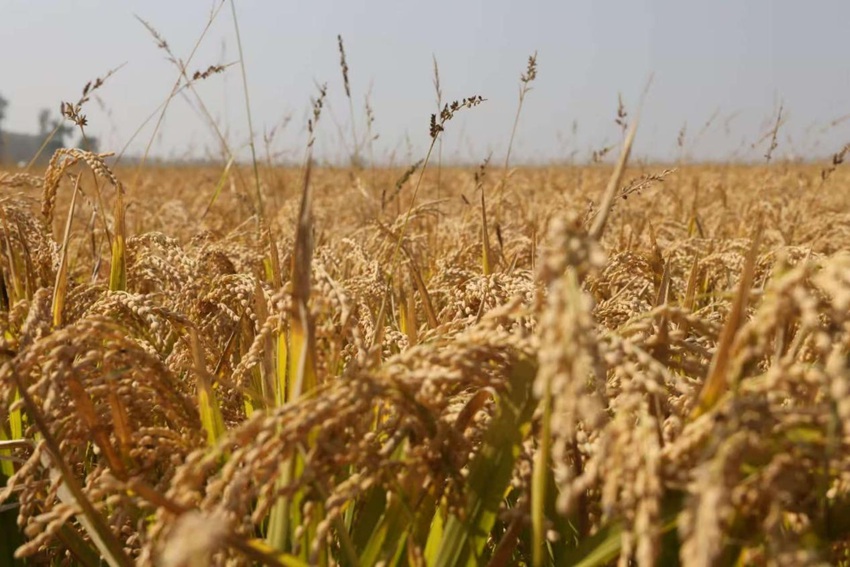
Photo shows ripe crops in a field in northeast China's Jilin Province. (People's Daily Online/Wang Haiyue)
Northeast China's Jilin Province has experienced relatively few natural disasters in 2025, with crops in their best condition in years and grain output projected to reach a new record.
As a major grain-producing region and an important grain supply base, Jilin has made food production its top priority. The province has made efforts to stabilize grain cultivation areas and improve yields per mu (1 mu is about 0.067 hectares) of land through effective planning and implementation, laying a solid foundation for a bumper harvest.
At the beginning of the year, Jilin released a detailed plan to increase grain output, aiming to achieve an annual target of 44 billion kilograms under normal conditions.
At dawn in the cornfields of an agricultural machinery and farmers' cooperative in Lishu county, Siping city of Jilin, three combine harvesters had already started to reap corn. "We're harvesting 36 hectares today, so let's keep up the pace!" said Wang Jun, head of the cooperative.
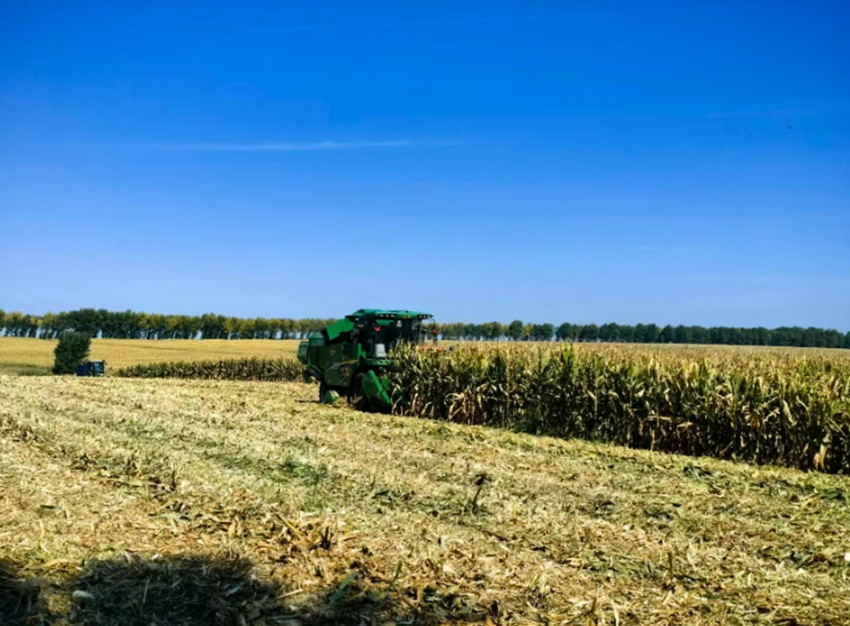
A combine harvester reaps corn in a field in northeast China's Jilin Province. (Photo courtesy of the interviewee)
Wang held a handful of black soil mixed with shredded straw. "Returning straw to the field has boosted the organic matter content and improved the soil's ability to retain water. Even with a dry spring, the corn grew well," he said. "A bumper harvest starts with protecting the black soil."
To that end, Jilin has formed a leading group for black soil protection and a provincial expert committee led by academicians from the Chinese Academy of Sciences. It has issued 38 concrete measures across 10 areas, treating black soil conservation as a cornerstone of food security.
At the same time, the province has made integrated water and fertilizer irrigation technology a key strategy for improving yields. By 2024, the technology covered 7.35 million mu of cornfields, with over 10 million mu expected this year. The technology saves about 30 tonnes of water and 20 yuan ($2.80) in labor costs per mu and increases fertilizer efficiency by around 30 percent.
The expansion of high-standard farmland, combined with technical guidance and modern machinery, can raise yields by 100 kilograms per mu, adding to farmers' optimism.
At a modern seed industry park in Changchun National Agricultural High-tech Industrial Demonstration Zone in Gongzhuling, a county-level city administered by Changchun, plump corn seeds are cleaned, bagged, and packed before heading to market.
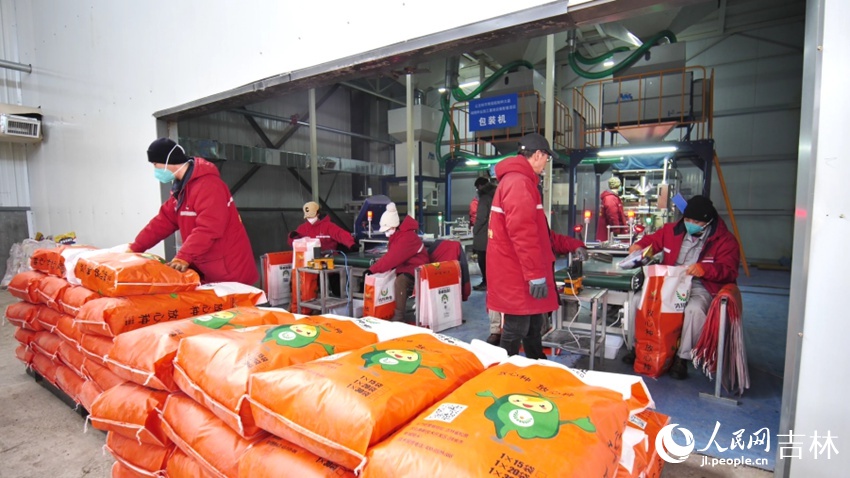
Workers pack corn seeds at the modern seed industry park in Changchun National Agricultural High-tech Industrial Demonstration Zone in Gongzhuling, a county-level city administered by Changchun, northeast China's Jilin Province. (People's Daily Online/Wang Haiyue)
In recent years, the city has advanced its seed industry revitalization project, independently cultivating over 400 corn varieties, nearly 200 rice varieties, and about 50 soybean varieties. It produces and sells more than 70 million kilograms of seeds annually, serving as a major hub for seed distribution in northeast China.
In the rice fields of a town in Qian Gorlos Mongolian Autonomous County, Songyuan city, plump crabs scuttle between the ridges.
Liu Shuang, general manager of Shuangzi Ecological Agriculture Development Co., Ltd., said the 1,320 mu of rice fields operated by his company are ready for harvest, with expected yields of 600 kilograms per mu. Crabs raised in the rice fields have also entered the harvest season, with nearly 10,000 kilograms already collected and over 5,000 kilograms expected to be harvested and brought to market soon.
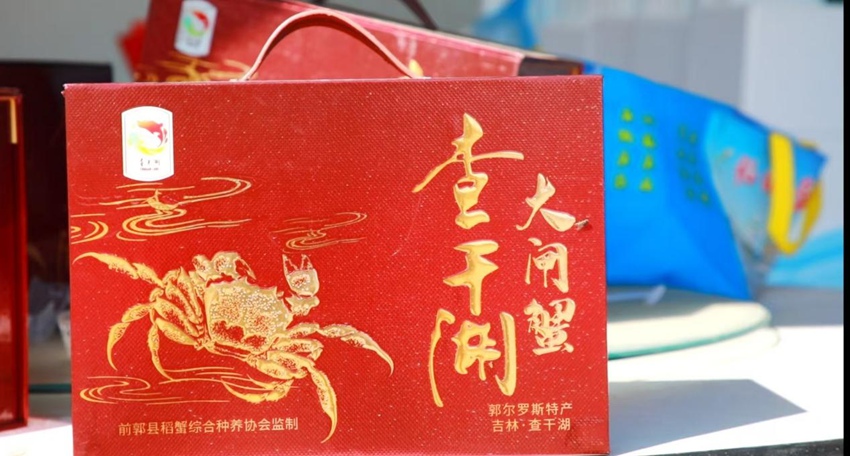
Photo shows packaged crabs from a town in Qian Gorlos Mongolian Autonomous County, Songyuan city, northeast China's Jilin Province. (Photo courtesy of the interviewee)
Liu said rice grown in crab-farming fields fetches a much higher price than regular rice. "Each mu brings in an additional 1,000 yuan from the crabs," he added. This is a vivid example of Jilin's drive toward ecological agriculture and green transformation.
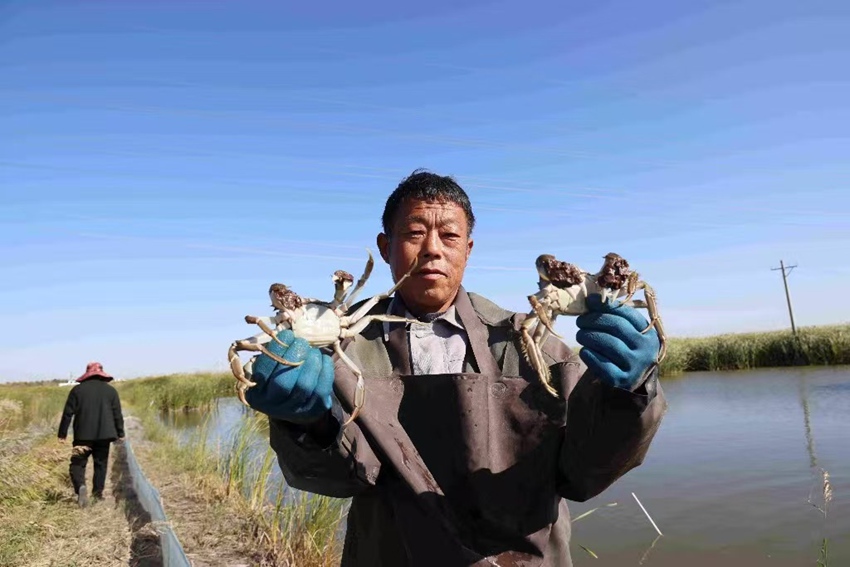
A farmer holds crabs in his hands in a field in northeast China's Jilin Province. (Photo courtesy of the interviewee)

Tel:86-10-65363107, 86-10-65368220, 86-10-65363106